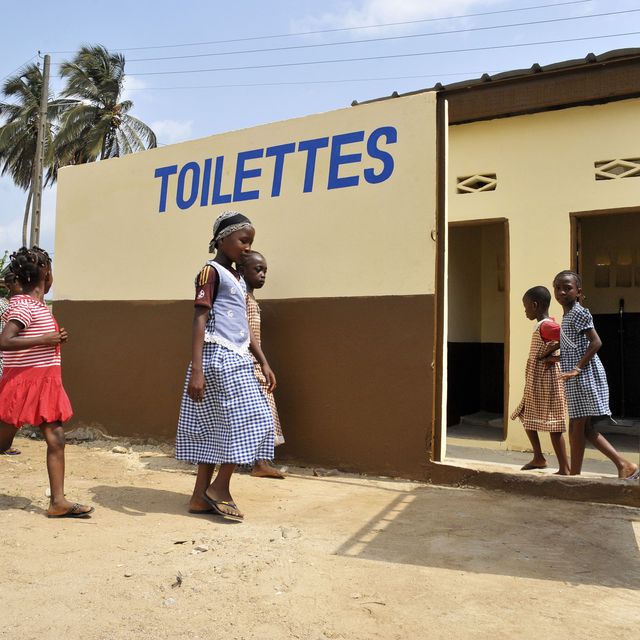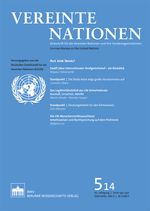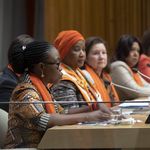Period Poverty and Stigma: A Matter of Human Rights

Activists and organisations across the globe are working towards eliminating the stigma that surrounds menstruation. Menstrual health management (MHM) is a human rights matter. Yet, although a “Menstrual Movement” might have existed since the 1970s, very little has been discussed of MHM as a human rights issue in human rights fora before 2012, when the UN Special Rapporteur included MHM into the conversation on safe water and sanitation as a human right. With the help of social movements such as #freeperiods and petitions such as Die Periode ist kein Luxus, MHM has gained increasing attention in popular media, particularly in terms of what is being referred to as “period poverty”. Period poverty is a term popularly used in the last few years to highlight the struggle of some who menstruate to pay for the sanitation products needed for hygiene, good health and well-being.
In 2018, the UN’s sexual and reproductive health agency, the UNFPA, commissioned a report on menstruation and MHM in East and Southern Africa. In the report, it is noted that MHM is not only “an issue of dignity in its own right”, it is also “a precondition for attaining other rights such as health or education.” Menstruation is deemed shameful and dirty in many societies and in most, if not all societies, there is a stigma attached to it. It is evident, according to reports such as the UNFPA’s, that this stigma causes various issues for those who menstruate. For example, if a person doesn’t have enough money for necessary menstrual products or they lack access to “adequate” facilities then they are more likely to miss days of education or work. This can have both negative short-term and long-term effects, for example, on self-confidence and dignity, and on a person’s ability to fully participate in society. Furthermore, studies show that urogenital infections are more likely to occur or worsen through a lack of information on MHM, or due to embarrassment and shame restricting a person from discussing menstruation and seeking the medical care they need. In some cultures, such as the Hindu culture in Far- and Mid-Western Nepal, the stigma associated with menstruation is so great that those who menstruate are separated from others and in some cases banished to small outbuildings (“period huts”) during their periods as they are considered “impure”. This tradition, called chhaupadi, has been declared illegal in Nepal since 2005 but continues to be practiced by many. Not only has chhaupadi been linked to various psychological and physical illnesses, it has also been linked to high infant and maternal mortality rates as mothers and babies are banished to sometimes fatal conditions in period huts after birth, without access to clean water and food and in danger of attacks.
Period Poverty and Stigma in Higher Income Countries
Issues related to period stigma and period poverty are not specific to lower income countries. The journalist Heike Kleen points out that in Germany, hygiene products such as tampons and sanitary towels fall under the category of “luxury items” in terms of VAT. Consumers must pay 19% VAT on these products instead of the reduced rate of 7% which was introduced to make everyday goods more affordable for all. Many argue that this is gender discrimination and that these products should be taxed at a reduced rate or not at all. In the UK, extensive lobbying against a so-called “tampon tax” resulted in a reduction to 5% in 2001. However, this was still considered too high by many and further campaigns took place to remove VAT entirely from certain sanitary products. In countries such as Kenya, Ireland, Canada, and Mauritius, as well as several US states, the tampon tax has been abolished. It is clearly time for other countries to follow suit. The #freeperiods campaign has highlighted the issue of children missing school in the UK (137,700 in 2017) because they cannot afford sanitary products. If a child cannot afford sanitary products, they are forced to improvise. According to Plan International UK, 40% of children in the UK who menstruate have had to use toilet paper in place of a sanitary product. These temporary solutions can cause health issues as well as embarrassment and shame. The #freeperiods campaign has seen a positive outcome in Scotland, where funding has been put in place to ensure that students at schools, colleges, and universities across Scotland have access to free sanitary products. And in Wales, a fund has been set up to tackle period poverty and stigma. The money will be used to distribute menstrual hygiene products to the community’s most vulnerable and to improve public toilet facilities. These funding victories, alongside a raised awareness and better education on matters of MHM, will create a huge difference in the lives of many.
A Necessary Part of the Conversation: Environmental and Human Rights Impact
However, there are other things that must be borne in mind and included in the conversation of period poverty, such as environmental and human rights impacts in terms of plastic waste and production. When thinking in terms of sustainability, it is important to campaign with these issues in mind and educate further. The architecture of facilities should be considered; for example, installing sinks within toilet cubicles in schools and in other public toilets. These adjustments would allow people the option of using a non-disposable menstrual cup for example, as there would be a convenient and hygienic space to wash them out. Furthermore, there is currently little mention of those who make sanitary products and what their working conditions might be. These are important factors to consider and to understand in the menstrual health conversation. MHM is not just a matter for those who menstruate. In the ongoing fight for sustainability and good health, it is a matter that everyone should get on board with. Period.
Teri Shardlow



